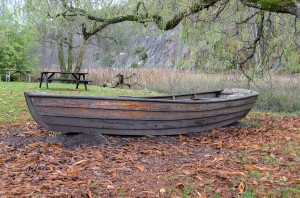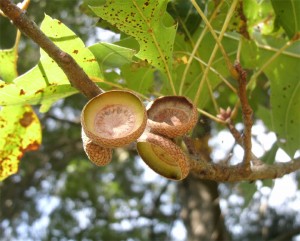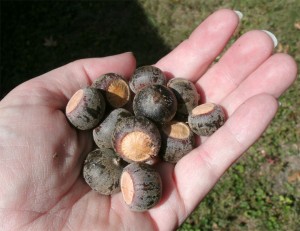I didn’t go looking for this entry. Yes, I decamped from our snow-caked north and drove south for some family visiting. And yes, as happens to many who drive south at this time of year, I had a time-lapse experience of spring – it arrived as we wheeled down from the Cumberland Plateau into the lower lands of North Carolina, where the grass showed a first green and the maples burned with the gaudy red haze of their flowers at distance. But all of that, even in its visual richness, is predictable. That’s why so many northern cars are loose on southern roads at this time of year.
What brought me to keyboard was an evening reading from early March, 1855 in Thoreau’s journal (a worthy book to bear into spring, yes?). On consecutive days – March 8th and 9th – Henry Thoreau also visited the north and then the south as part of a series of expansive March walks. “To the Carlisle Road,” he writes at the head of the 8th’s entry, which is another way of saying to Estabrook (or Easterbrook) Woods, which lie due north of town.
And then on the 9th, he’s at a spring favorite, the Andromeda Ponds – ah yes, there they are on the USGS quadrangle close by Walden, south of town.
Perhaps it is my own pining for spring as this remarkable winter eases (slowly), but Thoreau’s early March of ’55 reads poignant to me. Every day he goes out, and on most days he mentions that he hopes for a bluebird.
And it is appropriate, I think, that each day begins with Thoreau’s boat: “This morning I got my boat out of the cellar and turned it up in the yard to let the seams open before I calk it. The blue river, now almost completely open…admonishes me to be swift.” 3/8/55
Then, on the 9th, he writes, “painted the bottom of my boat.”
It is clear that Henry Thoreau is ready for some voyaging, and his walks to the north and then south seem to fit this yearning, as he notes also that “I walk these days along the brooks, looking for tortoises and trout, etc.”
Perhaps part of my impression stems also from a descriptive paragraph on pines and their amber drops of pitch. On the 9th Thoreau is also once again on the far side of Fair Haven hill, stepping over and balancing on newly felled “great white pine masts.” The cutters have been at it again, laying bare more Concord landscape, and it is typical of Thoreau that he doesn’t avert his gaze. Instead, he looks closely, and, amid devastation, he finds beauty. And question.
“I was struck, in favorable lights, with the jewel-like brilliancy of the sawed end thickly bedewed with crystal drops of turpentine, thickly as a shield, as if dryads (?), oreads (?), pine-wood nymphs had seasonably wept there the fall of the tree. The perfect sincerity of these terebinthine drops, each one reflecting the world…is incredible when you remember how firm their consistency. And this is that pitch which you cannot touch without being defiled?”
Boats, beauty amid loss, the call of water – the world opens out into spring, and we voyage out to it.



